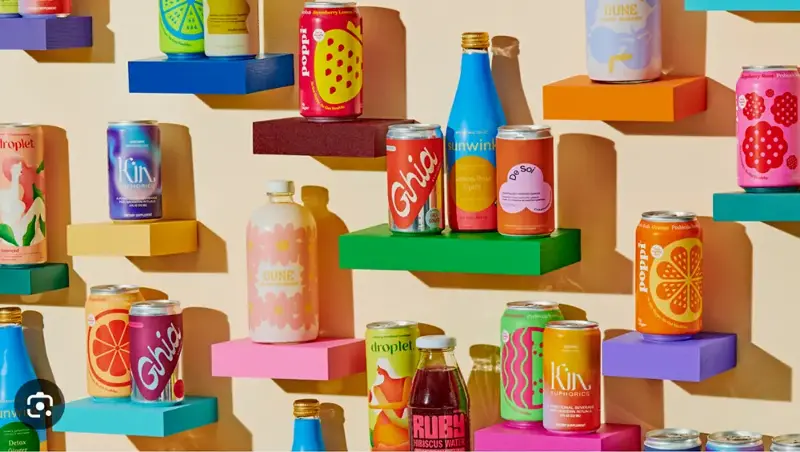In modern life, climate change, environmental pollution and disease outbreaks make people increasingly concerned about health-related issues. The trend of healthy food has also become one of the health-enhancing trends towards a sustainable lifestyle.

In today's society, urbanization has seen the emergence of more and more convenience store chains that are open all night and have become more familiar to everyone. From hot dogs, instant noodles, potato chips to carbonated soft drinks or packaged cookies, ultra-processed foods are considered a symbol of an era where convenience reigns supreme. Experts say that choosing unhealthy foods will be a warning of the risk of a "silent epidemic" spreading throughout the world .
Amid growing concerns, people around the world are turning to healthy eating to improve their health, boost their immune systems, and prevent disease. In the US, studies have also shown that consumers are increasingly turning to products labeled “natural,” instead of traditional habits as they worry about the rise of chronic diseases caused by ultra-processed foods, seed oils, and even fluoride in drinking water.
For the Japanese, up to now, they have always maintained healthy eating habits, prioritizing nutritious and minimally processed meals, mainly fresh seafood, brown rice, vegetables and fermented foods. Thanks to that, the average life expectancy of the Japanese is always among the top in the world thanks to a combination of many factors, including a healthy diet.
Meanwhile, the Mediterranean diet, popular in countries like Greece and Italy, which is mainly olive oil, fruits, vegetables, whole grains and fish, is heart-healthy, with a balance of fats and nutrients. This has led to a healthier lifestyle, with lower rates of heart disease and obesity than many other parts of the world.
As society develops, consumers will increasingly pay attention to healthy foods and drinks, promoting the development of healthy culinary trends. According to health experts, diet has a great impact on daily activities and is even related to mental health.
Keeping up with this trend, the global food and beverage industry has been moving towards health and wellness products in recent years. The industry has focused on developing nutritious, organic and natural food and beverage products. Many companies have innovated their products by reducing artificial ingredients, sugar and unhealthy fats, and adding fruit or herbal extracts to align with the health care trend.
In Europe, the need to reduce the amount of alcohol in drinks has become a typical trend today. Drinks containing extracts from fruits, fruits or herbs also have the ability to create a feeling of relaxation and joy. Countries actively participating in this race include Germany, England, Italy, France, Spain, the Netherlands, Switzerland, Belgium, Russia... In which, Germany is expected to dominate the market of milk and drinks of plant origin.
Japan is also showing a major shift in lifestyle, with nearly half of young people in the land of cherry blossoms today tending to say no to alcoholic drinks, despite the fact that beer and alcohol culture was once deeply ingrained in Japanese society. After-work drinking sessions with colleagues, once an important part of Japanese culture, are no longer attractive to young people, who prioritize work-life balance and have little desire to socialize outside of work. Observers say the decline in alcohol consumption will be long-term, reflecting a change in the habits of the younger generation in this country.
In addition, functional beverages and dietary supplements are also popular in the US market. While established brands introduce more healthy products, new businesses also launch more healthy drinks. The global food and beverage industry is bustling with healthy drinks. According to a market analysis report, the functional beverage industry reached a value of 149.75 billion USD in 2024 and is expected to grow to 248.5 billion USD by 2030.
In a modern society with so much choice, global consumers are increasingly more mindful of their spending, moving towards healthier eating habits. This trend represents a significant shift in shopping behavior as consumers prioritize healthy products with sustainable values. And with consumers faced with more and more choices, the onus is on brands to find products that stand out both on the shelves and online.
